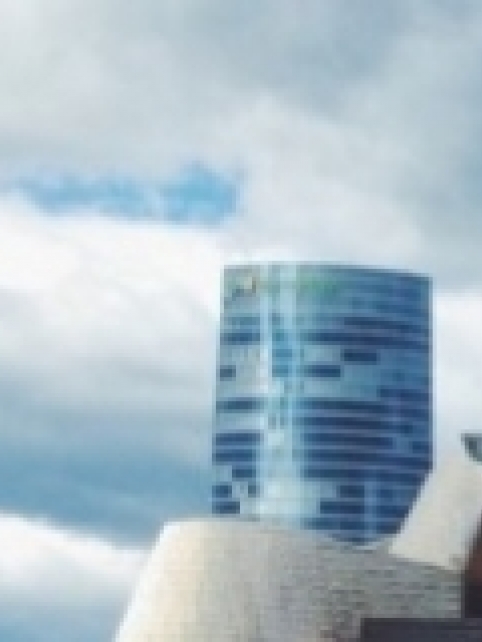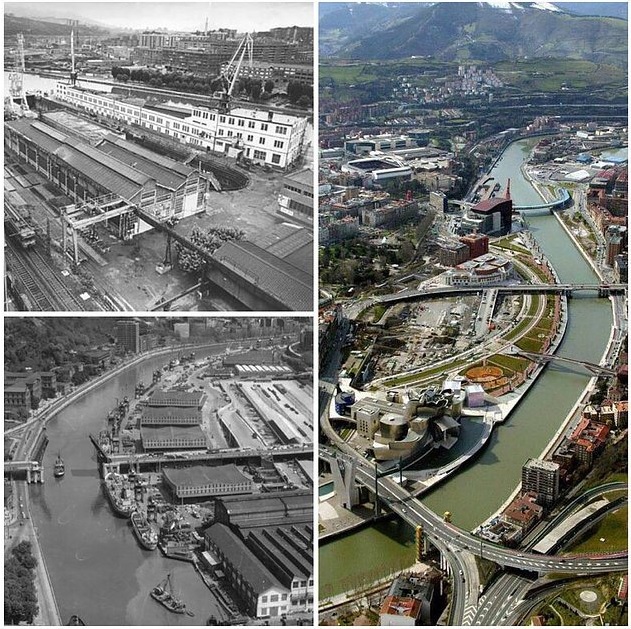Basque Social Economy - Space and Culture

GSEF 2018 (Bilbao, 1~3 October 2018) will be taking place in Spain which has shown remarkable resilience in overcoming economic difficulties through the social economy. Its experience ranging from the 1950s’ successful story of Mondragon, the region where Father Arizmendiarrieta with his five students' first co-operative dramatically changed the civil war-torn community which now grew a group of more than 200 cooperatives of ‘Mondragon Corporation’ with over 70,000 employees, to a more recent phenomenon 2008 onward, tackling unemployment and financial crisis by setting-up public co-working and cultural spaces to facilitate social innovation through the exchange of ideas, notably visible in Barcelona and Madrid such as Betahaus, Utopic_US and the Fab City projects.
(Betahaus)
(Fab Lab – Fab housing)
The initiatives are evidence of the economic resilience of Spain as the network of cooperative corporations in Mondragon showed remarkable success in protecting employees in times of financial crisis. Also the emergence of co-working spaces for increasing numbers of freelancer and individual job seekers showed that when the unemployment rate of Spain soared by 25% (and 50% for age under 25) in 2014, it provided not only a mere space but also promoted the collaboration and entrepreneurship to tackle the economic recessions and socio-economic challenges of Spain through social innovation.
When it comes to Bilbao, the hosting city of the GSEF 2018, one of the wealthiest and the most inclusive cities in Spain, is renowned for its innovative urban regeneration projects to overcome the challenges they faced; the drastic industrial declines happened in the 1980s that fundamentally altered the manufacture based economy of Bilbao and the catastrophic flood that severely damaged some of the major city infrastructures. In response, rather than opting for conventional development oriented growth prescription, citizens of Bilbao focused on creating public and cultural spaces to facilitate social innovation to revitalize troubled urban areas thereby achieve inclusive economic development.
Numerous co-working and creative public spaces were set-ups to spark innovation, entrepreneurship and liberal exchange of ideas in Bilbao and further Basque countries such as Bilbao Berrikuntza Faktoria (innovation factory) managed by the Mondragon University (MTA) to promote interaction of ideas and urban learning eco-system, Co. lab and Bilbao Lab Coworking. Also, its on-going project of establishing one of the largest innovation clusters in Europe ‘social innovation park' by renovating industrial ruins of the past. Essentially, establishing spaces and clusters where public gather to interact is not only about building infrastructures, but also more about fostering the eco-system to induce social innovation throughout urban areas. Focusing on spaces in cities is particularly relevant as a precondition for social innovation as Claude Schwab and Edward Glaser in his book ‘Triumph of the City' pointed out, it is a strategic path to achieve inclusive economic growth in the era of the 4th industrial revolution, and the cities are at the epicentre of the changes and the Basque country, Spain is leading this trend.
One of the other crucial aspects of social innovation in Bilbao, the Basque country is its emphasis on the culture as a path for rejuvenating industrial declines and damaged social cohesions in times of economic crisis notably in the 1980s and more recently, the financial crisis of 2008. The most well-known example might be the Guggenheim Museum, one of the biggest cultural projects and investments in Europe, which even dubbed the term as ‘Bilbao (or Guggenheim) effect’ that dramatically regenerated and boosted the city. According to the museum, as of 2016, it has contributed to approx €424.6 million to the gross domestic product (GDP) in the Basque region and provided jobs for over nine thousand citizens.
(click here to see the original stats and the article on Guggenheim urban renewal)
The Bilbao effect is not only about an iconic and showy architecture will benefit the economy, rather it is a demonstration that cultural investments can indeed impact on the city regeneration and local communities. Importantly, the project would not have been possible without the participation of citizens in the design and management of the projects. Indeed, the citizen involvements and co-governance between public and civil society are embedded in most of Bilbao's urban regeneration projects.
According to the Hope Institute, the tradition of co-governance in Bilbao starting from 1983 when the Bilbao urban regeneration council was established by civil professionals (and later changed into Bilbao Metropoli-30, Bilbao Ria 2000). The co-governance mechanism negated the direction of Bilbao regeneration plans and even the Guggenheim museum, despite initial public disapproval rate over 95%, successfully managed to implement the projects through the consultations. Metropoli-30 (former council) has become now a public-private platform for designing urban regeneration projects in Bilbao comprises over 140 members from the university, finance, railway and the Bilbao city government. The Bilbao city government is one of its 140 members and the council is an independent organisation where public-private equally contributes its operation and implementation projects.
According to Innobasque, a private, non-profit association, Basque envisions social innovation as the main driving force for the future by addressing four key challenges – ageing (in the context of working population drop currently above the EU average), employment (particularly in regard to the high unemployment rate of working-age 25-44), Education (towards lifelong learning empowering communities), and Governance (to enhance political participation of citizens).
Basque country and the way they leveraged the social economy has many things to offer to the world. For instance, its ‘Mondragon model’ of a cooperative network of cooperation that demonstrated the possibility of scaling up the social economy with the strong resilience and ‘the Bilbao effect’ which put the culture, values, and co-governance at the heart of urban development strategies all went hand in hand to realise the progress. Not only experience of Basque and other initiatives happening elsewhere in Spain such as in Barcelona, Madrid but also initiatives across the different continents, will bring their unique stories of how alternative ways are indeed possible – more people-centred and democratic ways of constructing our system by demonstrating the competitiveness of the social economy this October in Bilbao (www.gsef2018.org).
To find more about the stories (reference)
The William Davison Institute: Assessing Mondragon: stability & managed change in the face of globalization
The Conversation: The Mondragon model: how a Basque cooperative defied Spain’s economic crisis
Mondragon Group: Corporate Profile 2017
The Guardian: The Guggenheim Effect / The Bilbao effect: how Frank Gehry’s Guggenheim started a global craze
Goethe Institut: The Guggenheim Effect / An architectural milestone for urban renewal
The National: How the Basque country provides intriguing solutions to some of the world's thorniest challenges
Europe Tomorrow: Social Innovation in Spain
Innobasque: Social Innovation in the Basque Country
European University Institute, Florence: Culture-led strategies for urban regeneration: a comparative perspective on Bilbao.
* Available only in Korean
Seoul Social Innovation Park: 스페인사회혁신공간 기행 #1 #2
The Hope Institute: [세계는 지금] 빌바오 도시재생의 비밀
Science and Technology Policy Institute: 도시형 혁신공간의 부상과 동향



